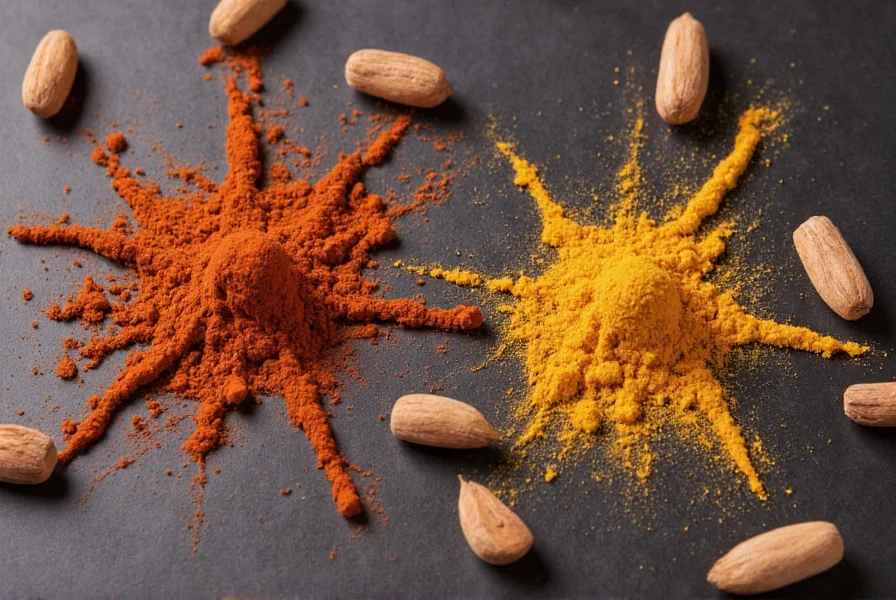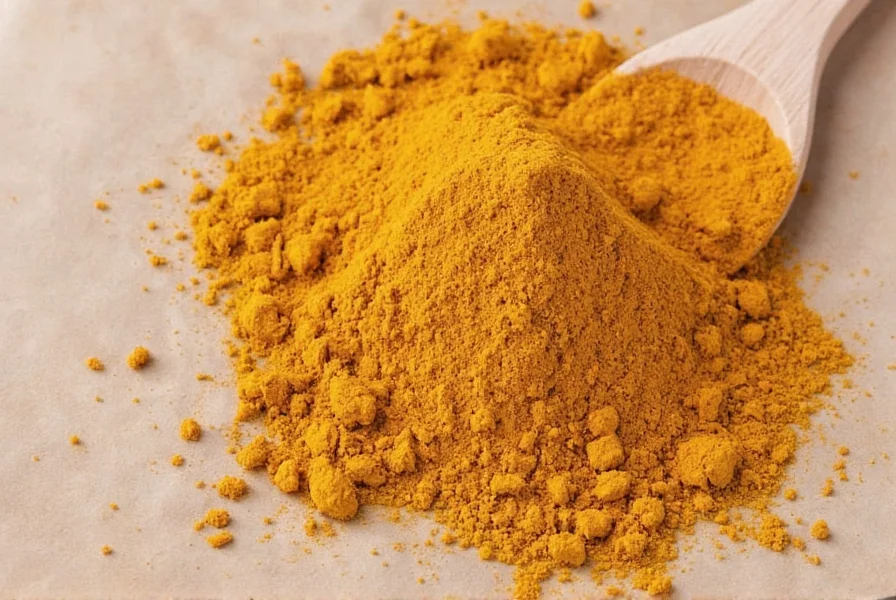Turmeric (Curcuma longa), the vibrant yellow spice central to curry powders and traditional medicine systems, has gained significant attention in modern science for its therapeutic potential. While commonly used as a culinary ingredient, its biological activities extend far beyond flavoring food. Understanding what turmeric does requires examining its primary bioactive component and the scientific evidence behind its effects.
The Science Behind Turmeric's Effects
Curcumin constitutes about 2-8% of most turmeric preparations and accounts for most of its documented health effects. This polyphenol compound interacts with multiple molecular targets in the body, influencing:
- Inflammatory pathways (reducing NF-kB and cytokine production)
- Antioxidant enzyme systems (boosting glutathione and superoxide dismutase)
- Cell signaling mechanisms related to growth and repair
- Neurotransmitter systems affecting mood and cognition
However, curcumin's therapeutic potential faces a significant challenge: poor bioavailability. When consumed alone, it's rapidly metabolized and eliminated. Modern formulations address this through:
| Formulation Type | Bioavailability Increase | Mechanism |
|---|---|---|
| Standardized extract (95% curcumin) | 1x (baseline) | Natural concentration |
| With piperine (black pepper) | 20x | Inhibits metabolic enzymes |
| Liposomal delivery | 50-60x | Enhanced cellular absorption |
| Nanoparticle formulations | 100-185x | Improved solubility and circulation |

What Turmeric Does: Evidence-Based Benefits
1. Powerful Anti-Inflammatory Effects
Chronic inflammation underlies many modern diseases. What does turmeric do for inflammation? Multiple clinical studies demonstrate that curcumin reduces inflammatory markers like C-reactive protein (CRP) and interleukin-6 (IL-6) comparably to some anti-inflammatory medications, but without the same side effect profile. Research published in the Journal of Medicinal Food found that 1,000mg of curcumin daily reduced CRP levels by 29% in people with metabolic syndrome.
For those asking how does turmeric help with arthritis, a systematic review in Phytotherapy Research concluded that curcumin supplementation significantly improved pain and function in osteoarthritis patients, with effects comparable to ibuprofen but better gastrointestinal tolerance.
2. Antioxidant Protection
Turmeric's antioxidant capacity works through two mechanisms: directly neutralizing free radicals and stimulating the body's own antioxidant enzymes. This dual action makes it particularly effective against oxidative stress, which contributes to aging and chronic disease development. Studies show curcumin increases activity of superoxide dismutase by up to 40% and glutathione levels by 30% in human trials.
3. Cognitive and Brain Health Support
Research on what does turmeric do for brain health reveals promising effects. Curcumin crosses the blood-brain barrier and has been shown to increase brain-derived neurotrophic factor (BDNF), a growth hormone that functions in the brain. Low BDNF levels are associated with depression and Alzheimer's disease. A randomized controlled trial in the American Journal of Geriatric Psychiatry found that 90mg of curcumin twice daily improved memory and attention in healthy older adults over 18 months.
4. Joint Health and Mobility
When people ask does turmeric really work for joint pain, the evidence suggests yes—for certain conditions. Multiple studies demonstrate that standardized curcumin extracts (providing 150-200mg of curcuminoids daily) significantly reduce pain and improve function in osteoarthritis and rheumatoid arthritis. The mechanism involves inhibiting inflammatory enzymes like COX-2 and reducing cartilage degradation markers.
Practical Considerations for Using Turmeric
Dosage Guidelines
Understanding how much turmeric should I take daily depends on your goals:
- General wellness: 500-1,000mg of standardized curcumin extract (with bioavailability enhancer)
- Inflammatory conditions: 1,000-1,500mg daily of enhanced curcumin
- Culinary use: 1-3 grams of turmeric powder in cooking (provides about 20-60mg curcumin)
For optimal absorption, always consume turmeric with black pepper (providing piperine) and a source of fat, as curcumin is fat-soluble.
Safety Profile and Potential Interactions
Turmeric is generally safe at appropriate doses, but understanding what are the side effects of taking turmeric is crucial. Potential concerns include:
- Gastrointestinal discomfort at high doses (over 1,500mg)
- Blood thinning effects (caution with anticoagulant medications)
- Gallbladder contraction (avoid with gallstones)
- Potential interactions with diabetes medications
Pregnant women should avoid therapeutic doses, though culinary use is generally considered safe. Always consult your healthcare provider before starting turmeric supplements if you have medical conditions or take prescription medications.
Realistic Expectations: What Turmeric Can and Cannot Do
While turmeric offers significant health benefits, it's not a miracle cure. What turmeric does effectively is support the body's natural inflammatory response and provide antioxidant protection. It works best as part of a comprehensive health approach rather than a standalone solution.
Most benefits require consistent use for 4-8 weeks before noticeable effects occur. The quality of the supplement matters significantly—look for products with third-party testing and standardized curcumin content with bioavailability enhancement.
Frequently Asked Questions
What does turmeric do for inflammation in the body?
Turmeric, specifically its active compound curcumin, inhibits multiple inflammatory pathways including NF-kB, COX-2, and various cytokines. Clinical studies show it reduces inflammatory markers like C-reactive protein by up to 29% with consistent use of 1,000mg daily of enhanced curcumin. Unlike NSAIDs, it works through multiple mechanisms without significant gastrointestinal side effects.
How long does it take for turmeric to work for joint pain?
Most clinical studies show noticeable improvement in joint pain and function within 4-8 weeks of consistent daily use. Research indicates that standardized curcumin extracts providing 150-200mg of curcuminoids daily significantly reduce pain scores in osteoarthritis patients. Maximum benefits typically appear after 12 weeks of regular supplementation with a bioavailable form.
Can turmeric help with brain fog and memory?
Yes, research suggests turmeric may improve cognitive function. Curcumin increases brain-derived neurotrophic factor (BDNF), which supports neuron growth and connectivity. A study in the American Journal of Geriatric Psychiatry found that 90mg of curcumin twice daily improved memory and attention in healthy older adults over 18 months. Many users report reduced brain fog within 6-12 weeks of consistent use.
What's the best way to take turmeric for maximum absorption?
For maximum absorption, take turmeric with black pepper (providing piperine) and a source of fat. Choose supplements with enhanced bioavailability formulations like liposomal curcumin, curcumin with piperine, or nanoparticle curcumin. The most effective products increase bioavailability by 20-185x compared to standard turmeric powder. Always take with food containing healthy fats like avocado, nuts, or olive oil.
Are there any medications that shouldn't be taken with turmeric?
Yes, turmeric may interact with blood thinners (warfarin, aspirin), diabetes medications, and certain chemotherapy drugs. Curcumin has mild anticoagulant properties and can enhance the effects of blood-thinning medications. It may also lower blood sugar levels, potentially causing hypoglycemia when combined with diabetes medications. Always consult your healthcare provider before combining turmeric supplements with prescription medications.











 浙公网安备
33010002000092号
浙公网安备
33010002000092号 浙B2-20120091-4
浙B2-20120091-4